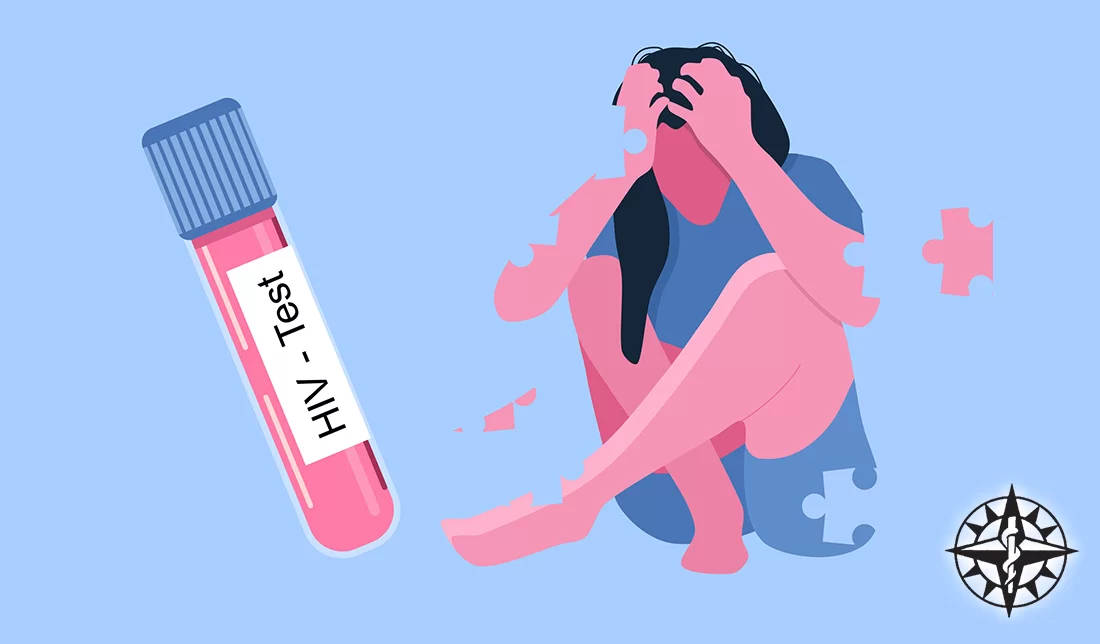Introduction
Living with HIV today is very different from it was decades ago. With the success of antiretroviral therapy (ART), HIV has become a manageable chronic condition. However, many people living with HIV still face significant mental health challenges, including anxiety, depression, and stigma.
The emotional burden of an HIV diagnosis, along with societal judgment and internalized shame, can deeply affect a person’s mental well-being. Mental health is not separate from HIV care — it’s a critical part of living a healthy, fulfilling life.
This article explores how HIV and mental health intersect, the impact of stigma, and practical strategies for managing emotional wellness.
1. The Emotional Impact of an HIV Diagnosis
Being diagnosed with HIV can be life-changing. Common emotional responses include:
- Shock or disbelief
- Fear of death or illness
- Guilt or shame
- Anger or frustration
- Worry about relationships or disclosure
These emotions are natural, but when left unaddressed, they can lead to chronic mental health conditions.
2. Anxiety and HIV
Many people living with HIV experience anxiety, which may be triggered by:
- Fear of health deterioration
- Fear of rejection or judgment
- Concerns about disclosing their status
- Worry over managing medication, appointments, and long-term care
Signs of anxiety may include:
- Restlessness
- Excessive worrying
- Difficulty sleeping
- Racing thoughts
- Panic attacks
3. Depression and HIV
Depression is more common in people living with HIV than in the general population. Causes include:
- Biological changes due to HIV
- Social isolation
- Unemployment or financial stress
- Ongoing stigma and discrimination
Symptoms of depression include:
- Persistent sadness
- Loss of interest or pleasure
- Fatigue
- Changes in appetite or weight
- Feelings of worthlessness
- Thoughts of self-harm or suicide
Untreated depression can interfere with ART adherence, immune system function, and overall health.
4. The Role of Stigma in Mental Health
HIV-related stigma is a major contributor to mental distress. It can be:
- External (from others): discrimination, rejection, verbal abuse
- Internalized (self-stigma): shame, guilt, feeling “dirty” or unworthy
- Institutional: poor treatment in healthcare or workplace settings
Stigma can cause people to:
- Avoid testing or care
- Delay starting treatment
- Isolate themselves from others
- Feel hopeless or powerless
Addressing stigma is essential to improving both mental and physical health outcomes.
5. Managing Mental Health with HIV
1. Seek Mental Health Support
- Talk to a mental health professional (psychologist, psychiatrist, therapist)
- Ask your HIV care team for a referral
- Explore LGBTQ+ affirming or trauma-informed services
2. Join a Support Group
- In-person or online groups offer connection with others who understand
- Reduces feelings of isolation and builds resilience
- Many HIV organizations host peer-led support groups
3. Consider Medication
- Antidepressants or anti-anxiety medications can be effective
- Always consult your doctor to ensure compatibility with ART
4. Practice Self-Care
- Exercise regularly
- Eat nutritious food
- Prioritize sleep
- Practice mindfulness or meditation
- Avoid alcohol and recreational drug use, especially as a coping mechanism
5. Build Supportive Relationships
- Surround yourself with people who uplift and accept you
- Talk openly with trusted friends or partners
- Healthy relationships reduce stress and improve quality of life
6. Stay Engaged in HIV Care
- Keeping viral load undetectable helps physical and mental well-being
- Feeling in control of your health can improve mood and confidence
6. Special Considerations
LGBTQ+ Individuals
- May face double stigma (HIV + sexual/gender identity)
- Need affirming, inclusive mental health services
Young People with HIV
- Face unique challenges with identity, disclosure, and future planning
- Support should include school and family-based interventions
Women with HIV
- May experience intimate partner violence, reproductive health concerns, and gender-based stigma
- Need holistic care that addresses mental, physical, and reproductive health
7. Breaking the Stigma
You are not alone, and living with HIV is nothing to be ashamed of. Speaking out, sharing your story (if and when you’re ready), and supporting others can help shift public perceptions and reduce stigma.
HIV does not define you. With support, treatment, and self-care, you can live a long, vibrant life.
Conclusion
Mental health is a vital part of HIV care. Whether you’re newly diagnosed or have been living with HIV for years, it’s okay to seek help for your emotional well-being.
Addressing anxiety, depression, and stigma is not a sign of weakness — it’s a sign of strength and self-respect. You deserve to feel good mentally, emotionally, and physically.
With the right support, resources, and care, it’s possible to thrive while living with HIV.
FAQs
Is it normal to feel anxious or depressed after an HIV diagnosis?
Yes. Many people experience emotional distress, but support and treatment can help manage it.
Can mental health affect HIV treatment?
Yes. Untreated depression or anxiety can lead to poor ART adherence and worse health outcomes.
What should I do if I feel overwhelmed emotionally?
Talk to a healthcare provider, therapist, or join a support group. You’re not alone, and help is available.
How can I deal with HIV stigma?
Surround yourself with supportive people, connect with others living with HIV, and challenge negative beliefs.
Can I live a happy life with HIV?
Absolutely. With treatment and support, you can live a full, meaningful, and joyful life.






